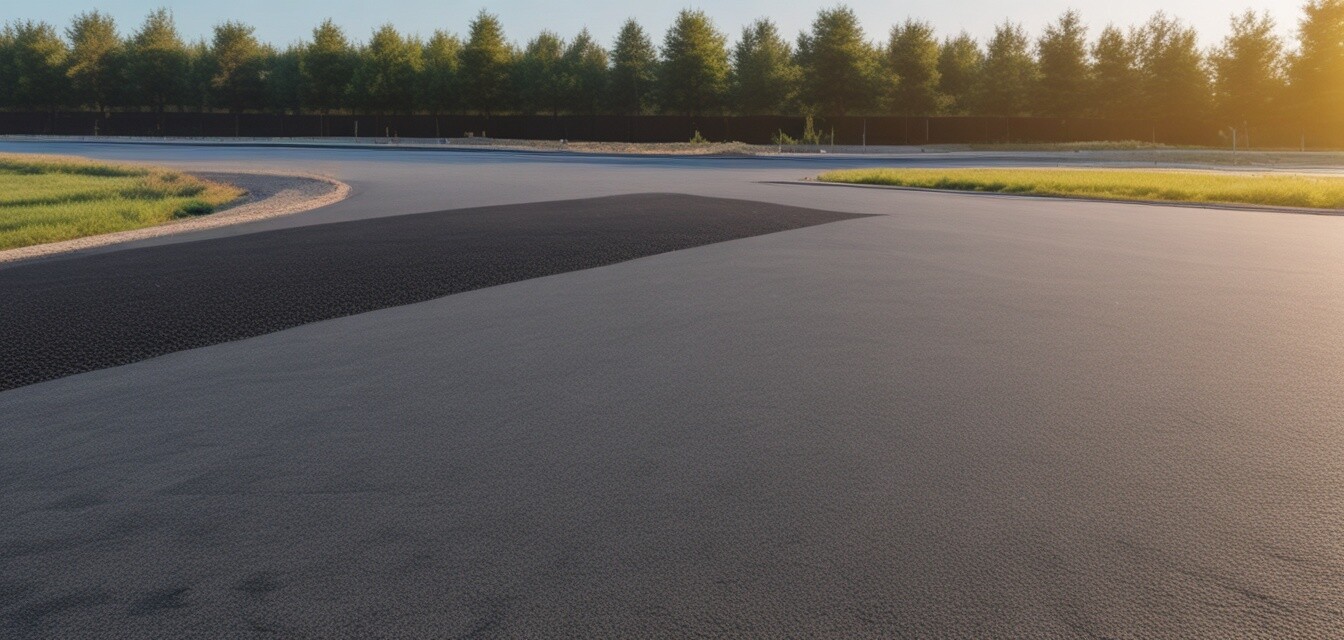
The Future of Eco-Friendly Asphalt Products
Key Takeaways
- Eco-friendly asphalt products are becoming more prevalent in the paving industry.
- These products utilize recycled materials which reduce waste and lower carbon footprints.
- Innovations in paving technology prioritize sustainability without compromising quality.
- Adopting eco-friendly practices can enhance a company's reputation and attract eco-conscious clients.
- Government regulations are encouraging the shift towards more sustainable asphalt solutions.
The asphalt industry is witnessing a significant shift as eco-friendly products come to the forefront. As environmental concerns gain traction globally, contractors, DIY enthusiasts, and property owners alike are seeking innovative solutions that not only meet their paving needs but also support sustainable practices. Let's explore how eco-friendly asphalt products are redefining the industry landscape.
What are eco-friendly asphalt products?
Eco-friendly asphalt products involve the use of sustainable materials and practices in the production and application of asphalt. They often incorporate recycled materials such as reclaimed asphalt pavement (RAP), rubberized asphalt, and bio-based additives. This shift is not solely driven by consumer demand but also by emerging technologies and regulations aimed at reducing the environmental impact of paving.
Types of eco-friendly asphalt products
| Type | Description |
|---|---|
| Reclaimed Asphalt Pavement (RAP) | Consists of recycled asphalt that is reused in new asphalt mixtures, reducing the need for virgin materials. |
| Rubberized Asphalt | Incorporates recycled rubber tires, improving performance and sustainability while utilizing waste materials. |
| Warm Mix Asphalt (WMA) | Produced at lower temperatures, reducing energy consumption and emissions compared to traditional hot mix asphalt. |
| Bio-based Additives | Utilizes plant-derived materials that enhance sustainability and reduce the need for petroleum-based products. |
Benefits of eco-friendly asphalt products
Switching to eco-friendly asphalt products offers numerous benefits:
- Environmental Impact: Reduces waste and lowers greenhouse gas emissions.
- Cost Savings: Utilizing recycled materials can lower production costs.
- Performance: Advanced formulations often enhance the durability and longevity of pavement.
- Market Demand: Growing consumer interest in sustainable options can lead to increased business opportunities.
Challenges in adopting eco-friendly asphalt
While the benefits are substantial, there are challenges to consider:
- Initial investment in new technologies and materials.
- Regulatory hurdles and certifications can complicate the adoption of new practices.
- Quality consistency may vary across different suppliers.
Industry trends pointing towards sustainability
Numerous trends are shaping the future of eco-friendly asphalt:
- Increased governmental regulations promoting sustainability.
- Advancements in recycling technologies that optimize the use of reclaimed materials.
- Growing public awareness about environmental issues influencing construction projects.
- Collaboration among industry stakeholders to establish sustainability standards.
Future outlook for eco-friendly asphalt products
As the asphalt paving industry continues to evolve, the emphasis on eco-friendly products is set to increase. Stakeholders across the industry—ranging from material suppliers to contractors—are recognizing the need to adapt to changing regulations and consumer pressures. The potential for growth in this segment is immense as more paving professionals explore eco-conscious alternatives.
Pros
- Reduced environmental footprint
- Utilization of waste materials
- Enhanced durability and lifespan of asphalt
- Potential cost savings in project execution
Cons
- Higher initial costs for some eco-friendly products
- Challenges in consistent quality and material availability
- Regulatory complexities for implementation
Concluding thoughts
The future of eco-friendly asphalt products is bright. By embracing innovations and sustainable practices, the asphalt paving industry can not only improve its environmental impact but also respond better to the needs of modern consumers. As technology continues to advance, we can expect to see even more revolutionary developments that will further solidify eco-friendly products within the industry.
Tips for adopting eco-friendly asphalt products
- Research available eco-friendly products and their applications.
- Collaborate with suppliers to identify the most sustainable materials.
- Stay informed about industry regulations and standards related to sustainability.
- Educate clients about the benefits of eco-friendly paving materials.
For additional insights on buying guides related to paving materials or asphalt mixes and additives, explore more in our blog category. Keeping abreast of the latest trends ensures you remain competitive in an ever-evolving marketplace.

